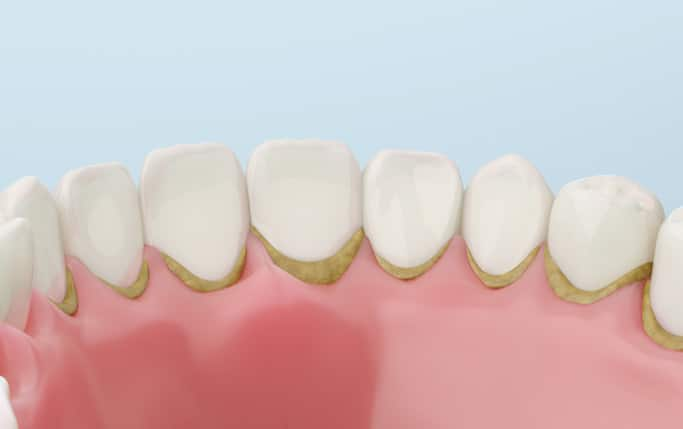What is Tartar?
Tartar, also known as dental calculus, is a hardened accumulation of dental plaque and mineral buildup. It can form on the tooth surfaces and both above and below the gumline. Plaque should be removed regularly for dental tartar not to accumulate, as this irritates the gum tissues and worsens gum disease. Tartar provides an ideal rough and sticky surface for more plaque to cling to and build up.
Try our best oral care toothpaste to get whole mouth health and a worry-free smile!
What Are The Symptoms of Tartar on Teeth?
While plaque is a sticky, colourless biofilm of bacteria on teeth, tartar is hardened plaque, a coating fairly noticeable above the gumline. Some signs that can be associated with tartar buildup include:
Slight bleeding while brushing: This is an early warning sign and can be caused by tartar irritating the gums.
Discoloration of the gums: Healthy gums are light pink, while tartar buildup can lead to the gums becoming darker red and irritated.
It's important to note that these symptoms can also be indicative of gingivitis, the early stage of gum disease. If you're experiencing any of these, it's best to consult a dentist for proper diagnosis and treatment.
What Causes Teeth Tartar?
Uncleaned dental plaque hardens to form tartar on teeth. Dental plaque is a colourless sticky film that develops due to a combination of mouth bacteria, food remnants, and proteins.
Here's how plaque leads to dental tartar formation:
Poor oral hygiene: Brushing and flossing twice daily is crucial for removing plaque, the sticky film harbouring bacteria. If plaque isn't removed effectively, it builds up as teeth tartar.
Mineralization: Minerals in saliva can harden the plaque deposits over time, transforming them into the hard, calcified substance known as tartar.
How Tartar Affects Oral Health
Timely removal of tartar can save you from various dental problems such as periodontal disease. Uncleaned plaque and tartar house bacteria, raising the risks of bad breath, cavities, and tooth decay. As plaque build-up continues, the tartar forming on teeth creates a porous area for more plaque to stick on, extending the cycle of plaque-to-tartar formation.
Treating the tartar and plaque build-up along the gumline can save you from gum problems such as gingivitis (swollen or bleeding gums) and gum recession. Early diagnosis and removal of tartar help prevent tooth discolouration caused by its absorption of stains from coffee, tea, and other pigmented drinks and foods.
How To Prevent Tartar Build-Up?
Like many dental issues, the solution usually lies in prevention! Rather than get to the stage of tartar build-up having to be professionally removed, you can take steps to prevent it from building up in the first place. While you can't safely remove tartar at home, with an excellent dental health routine, plaque removal can be done by following these steps:
Brush your teeth twice a day with a soft-bristled toothbrush.
Since your toothbrush can't reach all your tooth and gum surfaces, remember to floss (also known as interdental cleaning) once a day, too. If you have trouble using traditional floss, talk to your dental hygienist about alternative tools, like interdental brushes.
Rinse your mouth with a fluoride mouthwash after brushing to remove any bacteria build-up that you miss.
Even if you have excellent brushing and flossing habits, you still need to regularly see your dental professional for check-ups. At these appointments, they will remove any plaque formation you missed with your at-home oral care routine.
Can You Remove Tartar At Home?
One may wonder how to remove tartar at home to save the time and effort of meeting a dentist. The Indian Dental Association (IDA) recommends consulting a dentist for dental tartar removal, as the plaque once hardened into tartar, cannot be removed by regular brushing.
One may be tempted by home remedies that claim to be effective in removing tartar from teeth. However, it is ideal not to opt for those as they lack scientific evidence and may turn out to be unsafe. Alternatively, consider using an efficacious antibacterial toothpaste to back you up at home for early prevention of plaque and tartar formation.
For instance, brushing your teeth twice daily with Colgate Total Advanced Health toothpaste can help keep your whole mouth healthy. Colgate Total Advanced Health is an antibacterial toothpaste that fights germs for 12 hours on teeth, tongue, cheeks, and gums. Unlike ordinary toothpaste, it has Dual Zinc and Arginine technology, actively seeking out bacteria and forming a protective, anti-germ barrier.
Why A Dental Professional is Best?
While many people wonder how to remove tartar from teeth without a dentist, the IDA recommends having tartar removed by a dentist for safety and best results. Here's why a dental professional is the best choice for tartar removal:
Special tools and training: Tartar is really tough, brushing and flossing can't tackle it. Dentists and hygienists have ultrasonic scaling devices and other instruments designed to safely remove tartar without harming teeth or gums. They also have the training to use these tools effectively.
Seeing below the gumline: Tartar can build up below the gumline, where brushing can't reach. Dental professionals can access these areas and remove hidden tartar to prevent gum disease.
Protecting your teeth: If you try to remove tartar yourself with sharp objects, you could damage your teeth and gums. Dental professionals know how to remove tartar from teeth safely and efficiently.
Adopting a good oral hygiene regimen with proper brushing and flossing is ideal to remove plaque and keep potential dental problems at bay. Ideally, have regular dental check-ups to mitigate chances of plaque and tartar formation and enjoy a carefree smile!
Frequently Asked Questions
Why is tartar breaking off my teeth?
Surprisingly, tartar can easily break off your teeth, despite its strength and resistance to chipping. Factors such as consuming hard foods, aggressive tooth brushing, or improper flossing techniques can contribute to this breakage.
Is tartar removal painful?
The discomfort experienced in professional tartar removal is often mild and temporary. Depending on factors such as the amount of tartar and conditions such as tooth sensitivity, gingivitis, periodontitis, or gum disease, individuals may experience some discomfort during tartar removal.
What is the easiest way to remove tartar from teeth?
The easiest way to remove tartar from teeth is through professional dental cleaning by a dentist or dental hygienist. Tartar requires specialized tools and techniques to remove it, as it adheres stubbornly to tooth surfaces.
What happens when tartar is removed?
Removing tooth tartar eliminates hardened deposits harbouring bacteria, disrupting the progression of gum disease. It also leaves smoother tooth surfaces that are easier to keep clean through brushing and flossing. Overall, it improves oral health.
This article is intended to promote understanding of and knowledge about general oral health topics. It is not intended to be a substitute for professional advice, diagnosis or treatment. Always seek the advice of your dentist or other qualified healthcare provider with any questions you may have regarding a medical condition or treatment.
ORAL HEALTH QUIZ
What's behind your smile?
Take our Oral Health assessment to get the most from your oral care routine
ORAL HEALTH QUIZ
What's behind your smile?
Take our Oral Health assessment to get the most from your oral care routine













